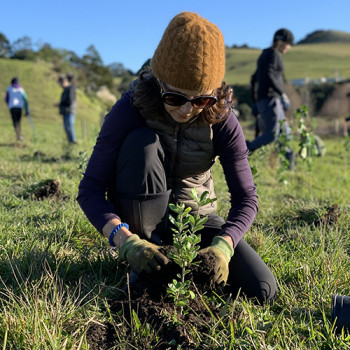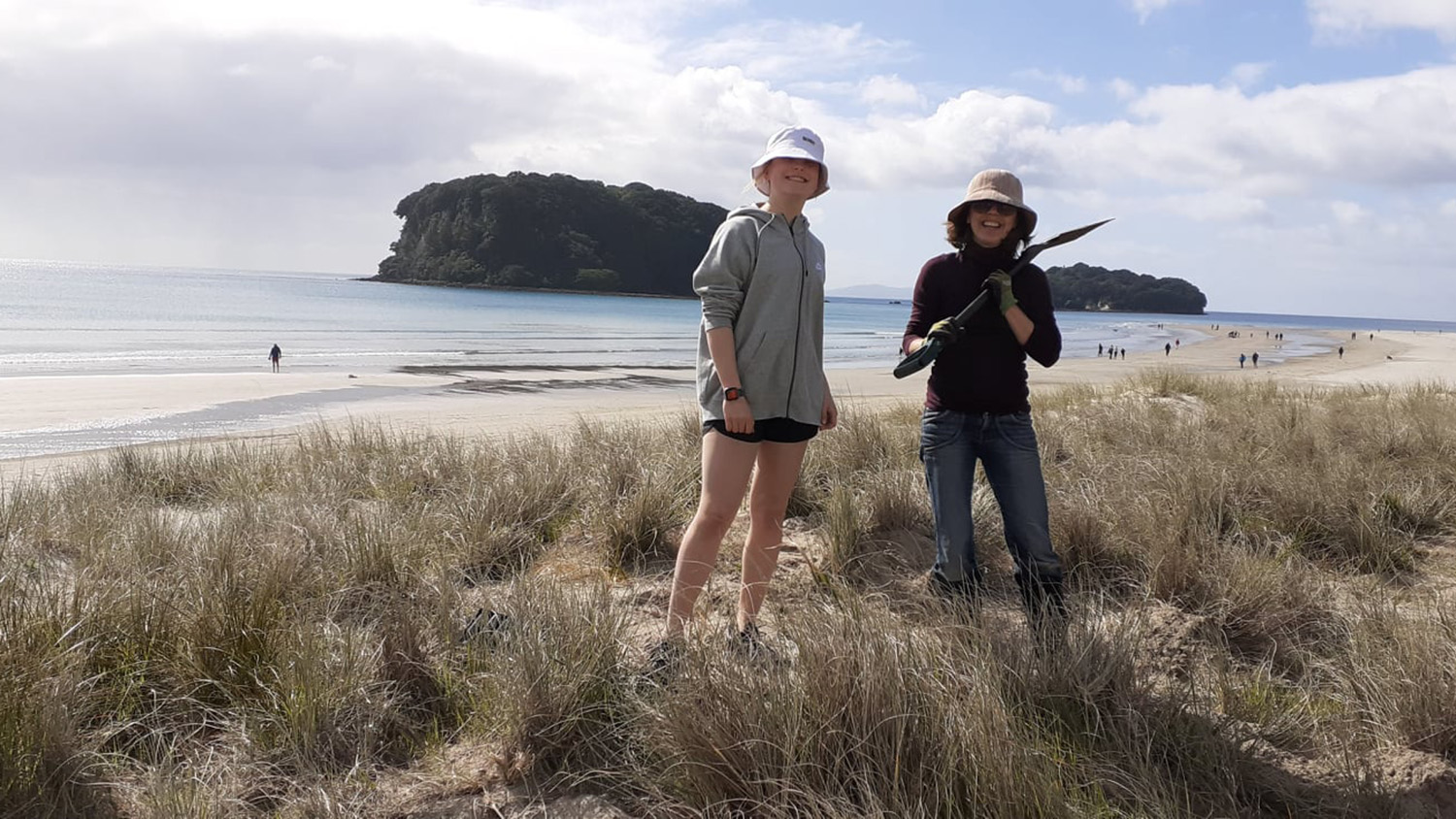“So often communities are talked at from a detached scientific or engineering perspective when we talk about climate change and I hope this project will contribute an alternative angle, by giving a voice to the lived experiences of local people.”
– Kerstie van Zandvoort, Massey University PhD student
How conservation groups in the Coromandel perceive and experience the changing seasons will form part of a European Research Council funded project designed to understand how people relate to our changing climate.
Massey University PhD student Kerstie van Zandvoort has been working with Coastcare groups on the Coromandel’s Kuaotunu Peninsula as part of a joint project with the University of Bergen in Norway to understand whether climate change might be impacting the seasonal rhythms we typically live by.
 Coastcare groups help care for beaches around the Waikato region. They are partnerships between the local community, iwi, district councils and Waikato Regional Council, working together to protect and restore our precious coasts. Across the region volunteers spend up to 1500 hours planting over winter months, but also carry out a range of other work aimed at protecting coastlines.
Coastcare groups help care for beaches around the Waikato region. They are partnerships between the local community, iwi, district councils and Waikato Regional Council, working together to protect and restore our precious coasts. Across the region volunteers spend up to 1500 hours planting over winter months, but also carry out a range of other work aimed at protecting coastlines.
“Formerly, seasons held important cues for helping people anticipate and plan for ‘normal’ weather and natural conditions, but in some places rapid climatic, natural and social changes mean that our established ideas of seasons may be out of sync with the seasons we are experiencing today,” says Kerstie.
Kerstie is one of four researchers who have embedded themselves into local institutions to explore the issue from a community perspective, both in Bergen city in Norway and in the Coromandel Peninsula. Kerstie’s research is specifically focused on engaging with conservation groups on the Kuaotunu Peninsula, which has included working with the Waikato Coastcare initiative.
In the Coromandel, there is a large council project underway to understand how communities in the district will adapt to climate change and Kerstie says she became interested in researching how local conservationists relate to seasons as a way of monitoring environmental change through their routine practices.
“I specifically wanted to work with conservation groups with a grassroots level of engagement with the local environment in order to help understand their interpretations of what they are experiencing on the ground.”
As part of her research, Kerstie has helped plant hundreds of native coastal plants within the dunes around Kuaotunu’s beaches, working alongside Coastcare groups in exchange for participants sharing their local knowledge with her.
Kerstie’s work with Coastcare groups on the Kuaotunu Peninsula aims to establish how residents might utilise seasonal transitions to be able to identify and track broader environmental changes as they manifest over time. Local perspectives are increasingly recognised as fundamental in proactively planning for adaptation to climate change at the community level.
“So often communities are talked at from a detached scientific or engineering perspective when we talk about climate change and I hope this project will contribute an alternative angle, by giving a voice to the lived experiences of local people,” says Kerstie.
“I guess it is helping to bring real people to the fore of one of the biggest challenges we are facing as a society.”

